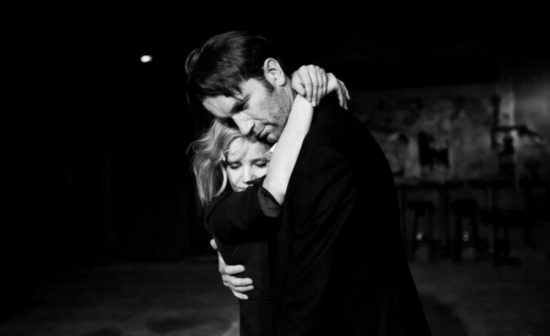Review: Cold War – “Stunningly crafted”
Taking place in the decade following the end of the Second World War, Cold War opens in a dilapidated country house where singers are tutored to perform folk songs that will be shown in theatres across Poland. It is here that Wiktor (Tomasz Kot), a music arranger and conductor, and Zula (Joanna Kulig), a young and beautiful singer, first meet and began an affair.
As the troupe’s success builds they are invited to other countries within the Soviet Bloc and even travel to Germany. It is here that Wiktor and Zula agree to cross the Berlin border together but Zula never turns up and Wiktor is left to enter the Western world alone. He ends up in Paris where he performs in jazz bars and arranges music for films. Zula keeps touring with the ensemble and they are both left longing for what could have been. It isn’t until a couple years later that they meet up again and continue their relationship.
I really loved Paweł Pawlikowski’s previous film Ida. Cold War shares its beautiful black and white cinematography and contemplative tone. Pawlikowski, who was born in Poland but moved to London when he was 14, began making documentaries and fiction films, most notably My Summer of Love, in the UK. He has since relocated back to Poland, a country whose history and culture clearly inspire him and is now producing the best films of his career.
Music plays an important role within Cold War and seems to represent two unsatisfying cultural paradigms. On one side there is the traditional folk music that the Polish ensemble sing across the Eastern Bloc. Their performances showcase the virtues of their country and the Soviet Union – Wiktor is at one point encouraged to add a couple of songs praising Joseph Stalin. The apparent purity and earnest sincerity of the troupe hides the USSR’s desire for cultural compliance and ethnic uniformity.
On the other side, there are the jazz bars that Wiktor performs in, which are filled with a bittersweet feeling of loss and what could have been. Paris provides everything that Warsaw lacks but neither Wiktor nor Zula really adapt. Zula resents having to sing her favourite Polish folk song in French and complains about the translated lyrics. For all the freedom found in France, it fails to represent them and will never feel like home. It appears that the happiness and fulfilment that Wiktor and Zula desire cannot be found on either side of the Iron Curtain.
The relationship between Wiktor and Zula takes place between these two worlds and they never find an environment that can hold their fragile romance together. There is a coldness that pervades their feelings to the extent that their relationship is defined more by longing than love.
The story is told in an episodic and elliptical manner, where a couple of events can define a year or even an entire period. Cold War is very much a snapshot of the post-war years that gives an impressionistic feel for those it depicts. Often more is revealed through the gaps between scenes than within the drama itself. Despite its broad scope, the film manages to keep an intimate feel.
Cold War is a stunningly crafted miniature that is equally stylish as it is wistful. Each frame is filled with a sense of beauty and loss that comes to define Wiktor and Zula’s lives.
Cold War opens in the UK on 31st August 2018.
You can follow me on Twitter.











